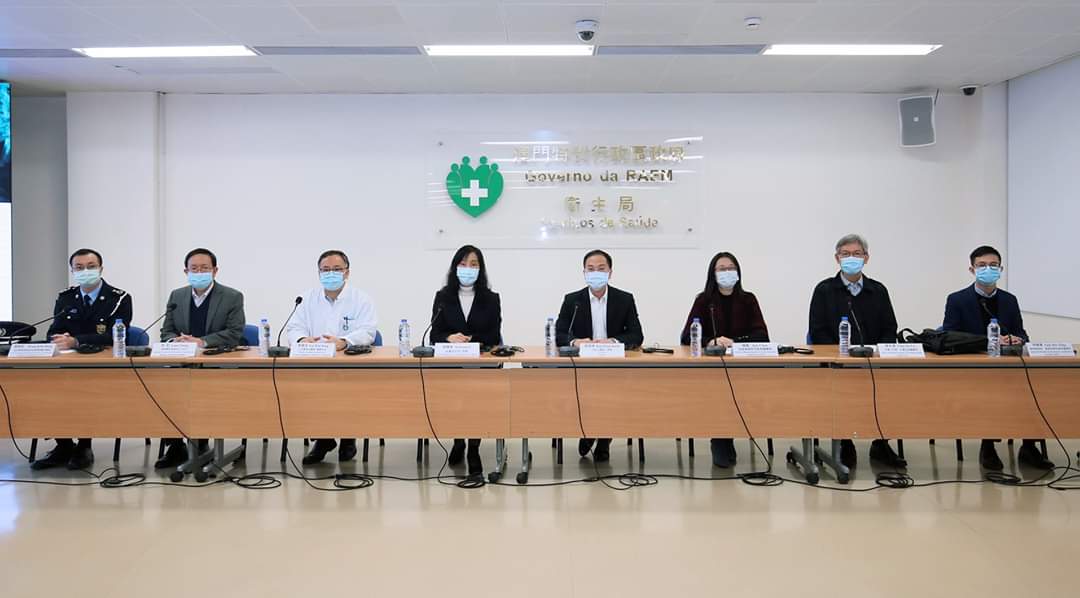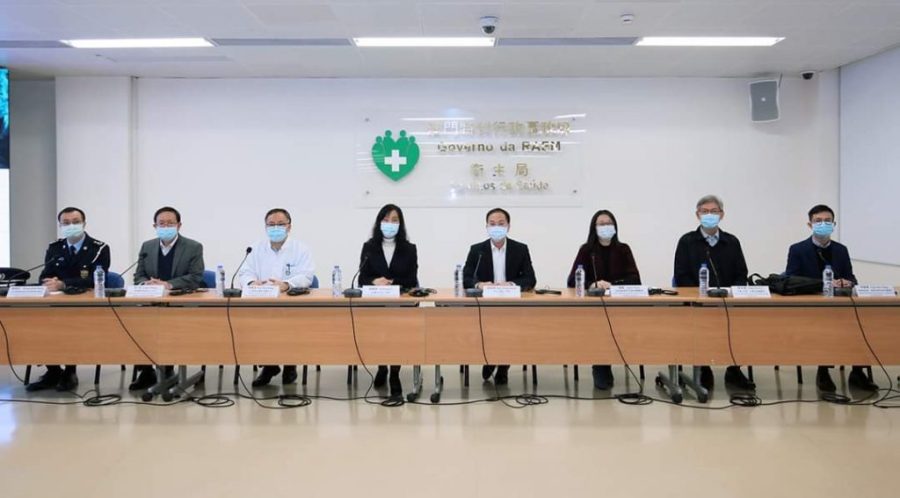Addressing Monday’s daily press conference about Macau’s latest novel coronavirus situation, Secretary for Social Affairs and Culture Elsie Ao Ieong U said that for the time being the local government will not consider closing any of the city’s border checkpoints, as many non-resident workers and local residents live in Zhuhai.
Ao Ieong made the remarks during the press conference on Monday evening at the Health Bureau (SSM) next to the public Conde de São Januário Hospital Centre, when replying to media questions as to whether the local government will consider closing some of the city’s checkpoints, after the Hong Kong government announced yesterday evening that it will close four other checkpoints from Monday onward.
Ao Ieong said that Macau’s situation was different from Hong Kong. She said that in addition to a large number of non-resident workers who commute between Macau and Zhuhai every day, many local residents also live in Zhuhai.
Ao Ieong reaffirmed that according to Article 33 of the Macau Basic Law, Macau residents have the freedom to enter or leave the city, therefore the local government cannot restrict local residents’ freedom to enter or leave the city. She said that consequently for the time being the local government will not consider closing any checkpoints.
Despite the constitutionally guaranteed freedom to enter or leave the city, Ao Ieong reaffirmed that the government is urging residents to refrain from doing so.
Macau has eight border checkpoints – 1) the Barrier Gate, 2) the Hong Kong-Zhuhai-Macau Bridge (HZMB) checkpoint, 3) the Outer Harbour Ferry Terminal in Zape, 4) the airport in Taipa, 5) the Lotus Flower Bridge checkpoint in Cotai, 6) the Taipa Ferry Terminal, 7) the Zhuhai Macau Cross-border Industrial Zone checkpoint in Ilha Verde, and 8) the Inner Harbour Ferry Terminal.
Ferry services between Macau’s Inner Harbour and Zhuhai’s Wanzai were relaunched after a long hiatus last month.
According to the Macau Post Daily, Ao Ieong said that if a particular mainland-Macau checkpoint were to be closed, people who commute between Macau and Zhuhai could still choose to use other checkpoints instead. She noted that, for instance, the earlier closing time of the Barrier Gate checkpoint every day – which were implemented last Monday – has caused many people to use the Zhuhai Macau Cross-border Industrial Zone checkpoint and the Lotus Flower checkpoint instead.
Since last Monday, the Barrier Gate checkpoint is operating between 6 a.m. and 10 p.m. Before the novel coronavirus crisis, the checkpoint – one of the world’s busiest – closed at 1 a.m.
During the daily press conference on Sunday, Secretary for Economy and Finance Lei Wai Nong said that the local government was urging local employers to arrange temporary accommodation in Macau for non-resident workers who commute between Macau and Zhuhai and whose continued work here is essential for their business operations so that they won’t need to commute between the two cities during the current virus threat. For those non-residents workers whose work is not essential at the moment, Lei said that the local government was urging their employers to arrange for them to remain in Zhuhai for the time being and not come back Macau to work until the Wuhan virus epidemic subsides.
Planning for worst-case scenarios
Ao Ieong said Monday that therefore what the local government now needed to think about is not whether to close any checkpoints, but instead how to further reduce the flow of people travelling between Macau and Zhuhai. She said that consequently the local government is currently discussing with local companies its proposed arrangement concerning the provision of temporary accommodation in Macau for non-resident workers. She underlined that many local company companies have told the government that they are willing to implement the arrangement.
In reply to a reporter’s question, Ao Ieong said that the government has come up with measures to tackle worst-case scenarios concerning the virus threat in Macau. She said now was not the right time to reveal the measures and that the government hoped it would never need to implement the measures. “Of course, it would be the best situation if the government doesn’t need to implement [such measures], and now it is not suitable to reveal [the measures],” she said.






